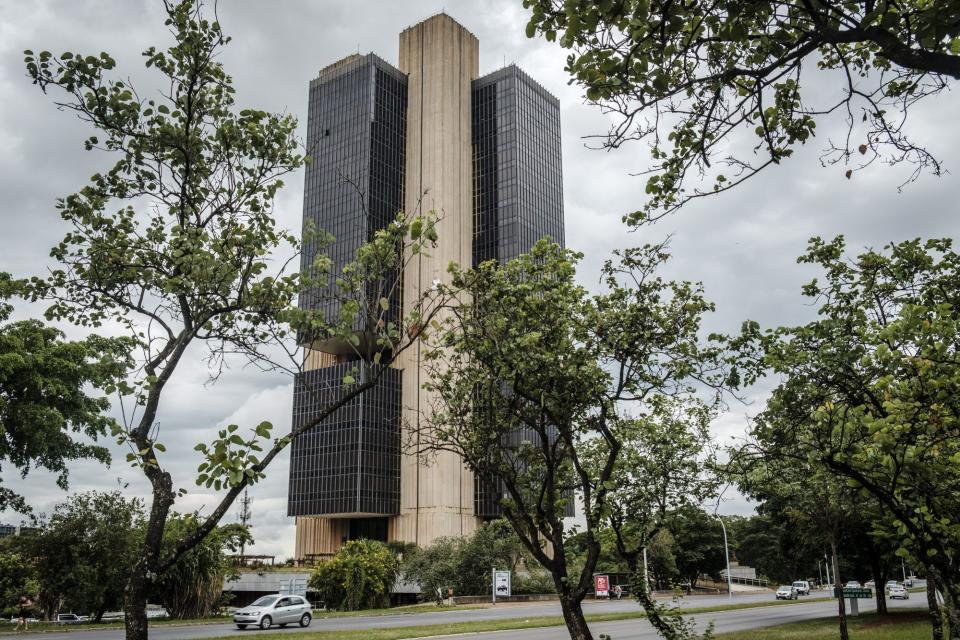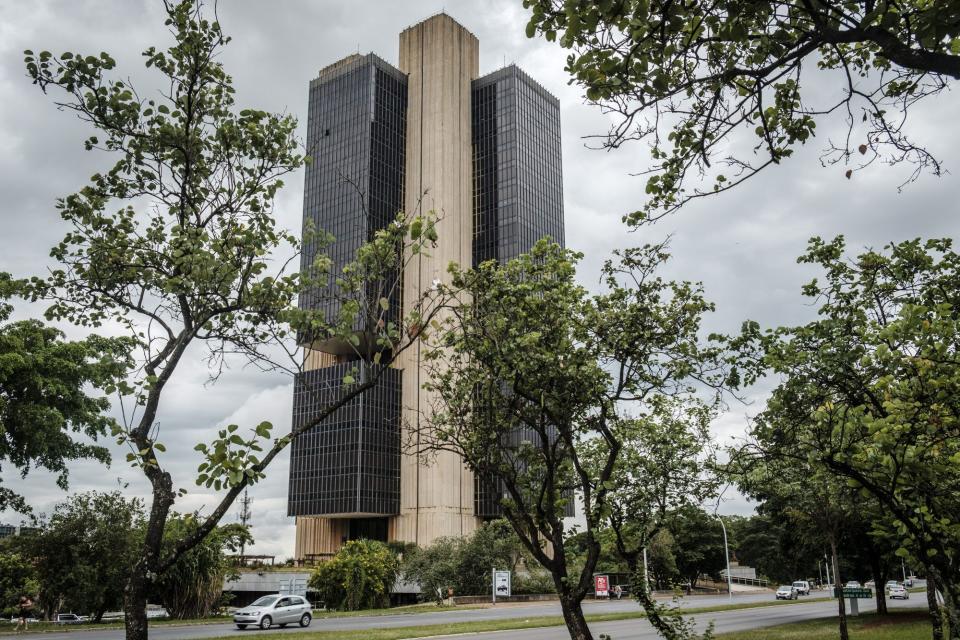Brazil Central Bank Needs to Unify Behind its Inflation Target, Ex-Governor Says
- Oops!Something went wrong.Please try again later.
(Bloomberg) -- The credibility of Brazil’s central bank is at risk as investors question policymakers’ commitment to reaching the 3% inflation target, according to a former president of the institution.
Most Read from Bloomberg
Citi Trader Got 711 Warning Messages Before Sparking Flash Crash
US Justice Department to Seek Breakup of Live Nation-Ticketmaster
Harvard Defies Faculty Vote to Block 13 Students From Graduating
Board members must move in lockstep in their pursuit of that goal to preserve the bank’s credibility, Gustavo Loyola said during an interview in Brasilia, days after all board members appointed by President Luiz Inacio Lula da Silva voted for a bigger interest rate cut than the majority decided to deliver.
The bank’s message during its next rate-setting meetings, Loyola added, will determine whether or not it will be able to rein in inflation expectations. Those forecasts have been deteriorating as investors worry about the future of Brazil’s monetary policy when Lula’s appointees become majority at the central bank next year.
“If central bankers give a signal that’s too weak, for example, inflation estimates can worsen,” he said.
The central bank’s split decision to reduce the pace of monetary easing, lowering the benchmark Selic by a quarter of a percentage point on May 8, has fueled expectations of faster price increases next year, leading economists and traders to say policymakers have no more room to cut interest rates. A decision to stop the easing campaign would put the bank in direct collision course with Lula, who has blamed the institution and its Governor Roberto Campos Neto for hindering the growth of Latin America’s largest economy.
Read More: Under Lula, Doves Are Rapidly Gaining Power in the Central Bank
Loyola, however, thinks the most likely scenario includes one more quarter-point cut next month, after which the bank would signal the end of the cycle.
He didn’t rule out the possibility of more split decisions by the bank’s board, and said they’re not necessarily a bad thing.
“There’s room for all directors to make public their opinions, even dissents, as long as it’s well explained, so that they don’t weaken the bank’s position,” said Loyola, who is currently a parter at consultancy firm Tendencias.
Yet what’s scaring off investors, Loyola added, is that there’s a “big chance” the monetary authority will be “more open” to cut borrowing costs once Lula secures a majority of board members. “It’s a risk that has to be considered,” he said.
Read More: Lula Central Bank Appointee Vows 100% Commitment to CPI Goal
Well-Tuned Orchestra
Loyola presided over the monetary authority in two separate occasions during the 1990s, leading a restructuring of Brazil’s financial system as an economic stabilization program known as Plano Real unfolded. The program also laid the groundwork for Brazil’s inflation-targeting regime.
As the Plano Real proves, Brazil has succeeded with “much harder” reforms than shoring up public accounts, he said.
“If there was political will, this government would do it,” he said.
Concerns over rising public spending are also pushing up inflation estimates, complicating matters for central bankers. Last week, Loyola participated in a round-table to celebrate the 30-year anniversary of Plano Real, where fiscal policy was debated.
Pedro Malan, who was Finance Minister under ex-President Fernando Henrique Cardoso, highlighted the need for a sustainable fiscal policy to lower consumer price projections. His hope, he said, is that voters will penalize a government “too complacent with inflation.”
Hosting the event, Campos Neto asked a panel with former central bank heads for advice on the institution’s communication. The issue of unity among the board is “becoming more serious,” said Gustavo Franco, who added the monetary authority needs to be a “well-tuned orchestra.”
“That’s how you build credibility, with a coherent speech,” said Loyola.
Most Read from Bloomberg Businessweek
A Hidden Variable in the Presidential Race: Fears of ‘Trump Forever’
The Dodgers Mogul and the Indian Infrastructure Giant That Wasn’t
©2024 Bloomberg L.P.



